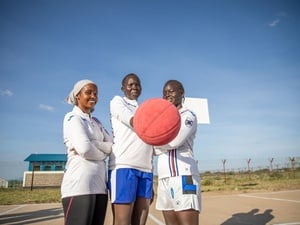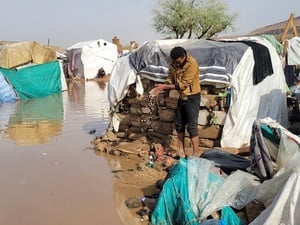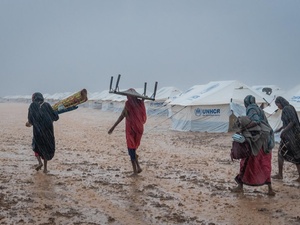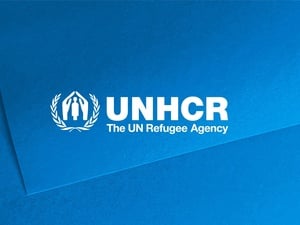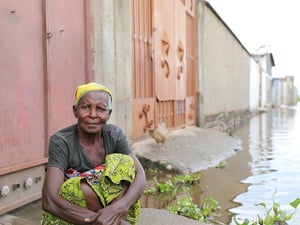UNHCR's Statement on a Report Published by Human Rights Watch
UNHCR's Statement on a Report Published by Human Rights Watch
UNHCR's Statement on a Report Published by Human Rights Watch
Nairobi, Kenya, September 17, 2016 – UNHCR, the UN Refugee Agency, takes note of the report published this week by Human Rights Watch on the repatriation programme for Somali refugees living in Dadaab, and shares some of the concerns raised by the organisation.
We recognise the challenges that Kenya, a country that has generously hosted refugees for decades, has expressed with regard to the Somali refugee situation, one of the most protracted in the world, as well as the challenges faced by Somalia in ensuring the returnees’ sustainable reintegration.
As the lead UN agency mandated to protect and assist refugees, UNHCR works closely with the Government of Kenya to ensure that refugees’ rights are upheld and that solutions are found, enabling them to live in peace and security, including voluntary repatriation in conditions of safety and dignity.
“The complex Somali refugee situation requires a comprehensive approach to solutions, which includes continued protection for those who remain in need of asylum, adequate support for those who choose to return voluntarily, as well as other alternatives such as third-country resettlement”, notes Raouf Mazou, UNHCR’s Representative in Kenya.
Central to any refugee return process is the principle of voluntariness. In all of our engagements with Government officials (both bilaterally and within the framework established under the Tripartite Agreement of 2013), refugees and other stakeholders, we have consistently stressed that repatriation must be voluntary and cannot, therefore, be time-bound.
In line with the principle of voluntariness, UNHCR is committed to ensure that all refugees receive adequate information about conditions in the country of origin and are able to make an informed decision regarding return. We regularly meet with refugees and broadcast radio messages in English and Somali, emphasising that returns must be voluntary and based on an informed decision. We are also strengthening our Return Help Desks in Dadaab and Kakuma, working closely with colleagues and partners in Somalia to provide the most up-to-date information.
Prior to the decision of the Government of Kenya to close the Dadaab camps, several thousand refugees had already registered their intention to return, many of whom have since voluntarily returned to Somalia. Over the past five years, the Somali refugee population in Dadaab has reduced by some 160,000 individuals, attributed to both supported and ongoing spontaneous returns to Somalia, as well as the recently concluded population fixing/verification exercise.
To facilitate sustainable returns, it is important that the returnees receive the necessary support, including financial assistance and basic relief items. However, the sustainable reintegration of Somali refugees willing to return to their home country goes beyond individual return packages: continued commitment from the international community to strengthening the infrastructure and services inside Somalia remains crucial.
END
Media contacts:
In Geneva, Nora Sturm, [email protected], +41 79 200 76 18
In Nairobi, Duke Mwancha, [email protected], +254 722 207 863


